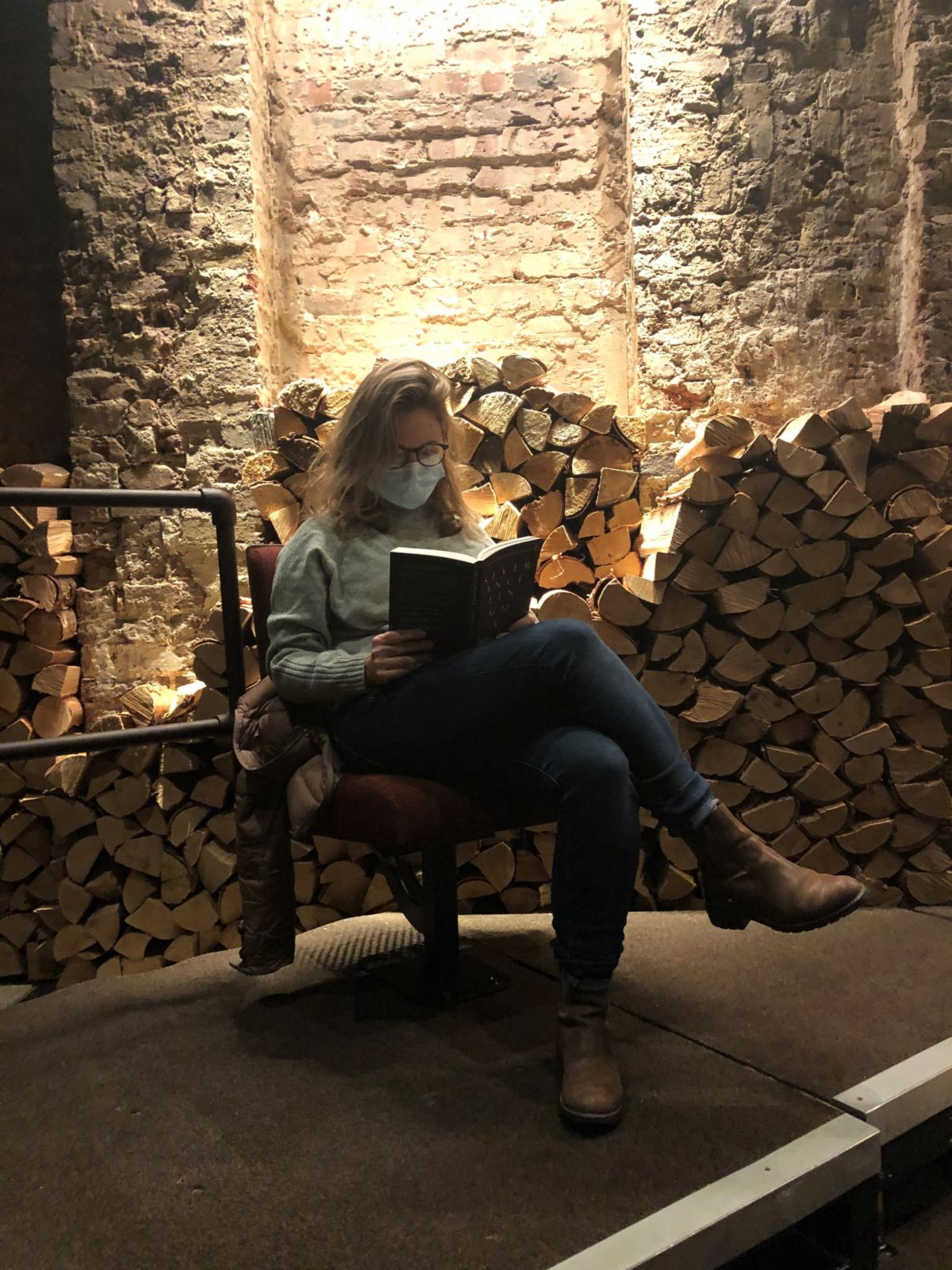Here is an unusual and enjoyable apocalypse. People are infected by a fungus that slowly removes their higher functions, so that eventually they are only able to go through the routines of their life, repeating familiar loops, till they die of exhaustion/starvation. It’s weirdly poetic, with – for example – a single Gap store remaining pristine, because one of ‘the fevered’ is stuck in a routine there, endlessly folding and refolding.
The protagonist, Candace, is just getting dumped by her boyfriend as the book begins. He wants to be an artist, and doesn’t want to have to have a ‘job.’ Candace also wants to be an artist, and also doesn’t want to have a job, but is more on the realistic suck-it-up end of the spectrum. The infection comes out of China (this book is really eerily Covid-y), and she agrees to stay as the skeleton staff in her office in New York, enjoying the familiarity of her routines as the city empties.
Eventually she escapes the city and falls in with a group of survivors, the leader of whom very quickly loses his sense of proportion. One of the members of their group visits her childhood home and almost immediately gets stuck in a loop. Apparently familiarity is a trigger:
The past is a black hole, cut into the present day like a wound, and if you come too close, you can get sucked in.
Don’t need a pandemic to learn that.
So a mysterious and interesting book, albeit with some unnecessary and exceedingly woke sidebars about capitalism and immigration. This concept of your routine as both comforting and deadly I keep thinking about. As she says towards the end:
To live in a city is to live the life that it was built for, to adapt to its schedule and rhythms, to move within the transit layout made for you during the morning and evening rush, winding through the crowds of fellow commuters. To live in a city is to consume its offerings. To eat at its restaurants. To drink at its bars. To shop at its stores. To pay its sales taxes. To give a dollar to its homeless.
To live in a city is to take part in and to propagate its impossible systems. To wake up. To go to work in the morning. It is also to take pleasure in those systems because, otherwise, who could repeat the same routines, year in, year out?
I feel there is something important about this, but I can’t quite figure out what it is

